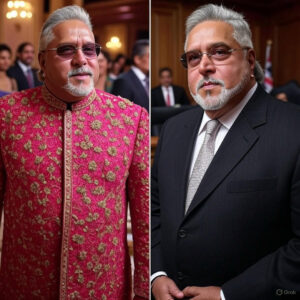In today’s fast-changing world, an MBA is often seen as the golden ticket to MBA career success and high-paying jobs. But is this investment truly worth the cost, effort, and time? Let’s break down the reality behind the MBA hype, especially when it comes to prestigious institutions like Harvard and the Indian Institutes of Management (IIMs), and explore if an MBA guarantees career growth or just a big financial burden.
Table of Contents
ToggleThe Real Cost of an MBA Investment
Pursuing an MBA is one of the most significant financial decisions a professional can make. While the promise of MBA career success drives many to enroll, the investment required—both monetary and non-monetary—demands careful analysis. Let’s dissect the real costs of top programs like Harvard Business School (HBS) and Indian Institutes of Management (IIMs), using verified data to separate fact from fiction.
Harvard MBA: A $160,000+ Investment for Global Aspirants
For international students, Harvard’s MBA program is a premium investment. The 2024–2025 academic year costs for a single student total $118,854 (₹98.6 lakhs INR), including tuition ($76,410), health fees ($1,592), housing ($17,280), and living expenses. These figures exclude additional expenses like travel, visas, or pre-term courses, which can add ₹5–10 lakhs.
IIMs: Rising Fees and the 30-Lakh Benchmark in India
In India, the cost of an MBA is climbing rapidly. IIM Calcutta’s 2025–27 batch will pay ₹33.5 lakhs, while XLRI Jamshedpur’s PGDM program costs ₹30.6 lakhs. Even newer IIMs like Shillong have raised fees by 22%, reaching ₹26.18 lakhs. However, outliers like FMS Delhi offer programs for just ₹2.32 lakhs, highlighting stark disparities in India’s business education landscape.
Why an MBA Doesn’t Guarantee a Job or Career Success
Despite the popular belief, an MBA does not come with a job guarantee. Even graduates from Harvard face a tough job market, with about 10% struggling to secure employment immediately after graduation. This is a global challenge, not just limited to India.
Global Job Market: Fierce competition means no guaranteed placement
Unpredictable Outcomes: Even top-tier MBAs sometimes face unemployment
Understanding this reality helps set practical expectations for your MBA journey and career growth.
Is MBA Career Success About More Than Just the Degree?
Many students enter MBA programs with a sense of entitlement, expecting instant success. However, MBA career success depends more on mindset, strategy, and hard work than just the degree.
Mindset Matters: Success requires resilience, adaptability, and continuous learning
Non-traditional Paths: Fields like brain science or behavioral psychology may offer unique advantages beyond typical MBA roles
An MBA is a tool, not a magic wand.
Harvard vs IIM: Different Paths to Career Growth
While both Harvard and IIMs offer world-class business education, their focus and networks differ significantly:
| Aspect | Harvard MBA | IIM MBA |
| Focus | Global leadership and entrepreneurship | Leadership in Indian and multinational firms |
| Networking | Extensive international connections | Strong local and regional business ties |
| Career Aspirations | Executive roles, startups | Corporate leadership in India |
Choose based on your career aspirations, financial capacity, and desired network.
Overcoming Failure: The Hidden Ingredient to MBA Career Success
Success stories often start with failure. Early setbacks, like childhood embarrassment, can build resilience and determination—traits essential for thriving in competitive MBA programs and beyond.
Personal Growth: Overcoming fear and self-doubt shapes future leaders
Resilience: The ability to bounce back is crucial for career growth
The Allure and Reality of MBA in India
In India, the MBA fever is driven by cultural pressure and the belief that it leads to better jobs and social status. However, the reality is more nuanced.
Cultural Pressure: Societal expectations fuel MBA demand
Reality Check: Not all MBA graduates secure lucrative jobs, especially without evolving skills
Understanding this gap is key to making informed decisions.
Early Education and Social Skills: Foundations for MBA Career Success
Early education plays a vital role in shaping future professionals. Strong reading habits, communication skills, and confidence built from a young age can greatly enhance MBA outcomes.
Reading and Vocabulary: Essential for leadership and marketing roles
Communication Skills: Public speaking and real-world experiences like sales help develop confidence
These skills complement business education and accelerate career growth.
Is Pursuing an MBA Still Worth the Investment?
Given the high costs and uncertain job outcomes, is an MBA still a smart investment?
Factors to Weigh: Career goals, financial investment, personal growth potential
Emerging Alternatives: Fields like data science, design thinking, and behavioral economics offer promising career paths outside traditional MBA roles
An MBA can be a powerful tool for those with clear strategy and realistic expectations.
An MBA can unlock doors to career growth and opportunities, but it’s not a guaranteed ticket to success. The value lies in how you leverage the education, network, and personal development it offers. Success depends on a blend of mindset, early preparation, and adaptability to the changing professional landscape. Pursue an MBA only after thorough reflection on your goals and the true cost of this investment.
FAQ Section
1. Does an MBA guarantee a high-paying job?
No, an MBA does not guarantee a job or a high salary-outcomes depend on the market, your skills, and networking.
2. What is the real value of an MBA?
Beyond potential salary boosts, MBAs offer increased career confidence, broader career choices, and personal growth.
3. Are the costs of an MBA justified?
The costs are significant, including tuition, living expenses, and lost income, so the decision should be based on your career goals and financial situation.
4. Is MBA career success only about salary and status?
No, many graduates define success by personal growth, job satisfaction, and career flexibility, not just money or titles.
5. How do Harvard and IIM MBAs differ?
Harvard focuses on global leadership and networking, while IIMs prepare graduates for leadership in Indian and multinational companies.
6. What skills matter most for MBA career growth?
Leadership, communication, adaptability, and strategic thinking are critical for long-term career success.
7. Can an MBA help if I want to change industries?
Yes, it can open doors to new industries, but prior experience and skills remain important.
8. Is there a job guarantee for MBAs in finance?
No, competition is fierce even in finance, and job placement depends on prior experience and market demand.
9. Do all MBA graduates experience fast career advancement?
Not always-some value stability and deeper expertise over rapid promotions.
10. Are there alternatives to an MBA for career growth?
Yes, fields like data science, design thinking, and behavioral economics offer lucrative and growing career paths.

Jugaad on Two Wheels: The Hilarious Bike Parcel Hack in Karnataka
The Great Karnataka Bike Parcel Hack: A Jugaad Masterclass #RapidoParcel: In a creative yet controversial move, ride-hailing platform Rapido has found a way around Karnataka’s

Denmark’s Digital Sovereignty Revolution: Linux and LibreOffice Lead the Way
Introduction to Denmark’s Bold Move In June 2025, Denmark’s Ministry of Digital Affairs made headlines by embracing digital sovereignty, ditching Microsoft Windows and Office 365

🏏Sports as a Business Strategy: Insights from Vijay Mallya’s RCB Ownership
🧠 Sports as a Business Strategy (Tool) In modern business, few platforms offer better engagement and emotional connection than sports. From football clubs in Europe

🙏 Apologies in Leadership: Vijay Mallya Public Apology
🧠 Introduction: The Role of Apologies in Leadership In the corporate world, apologies aren’t signs of weakness—they’re strategic acts of leadership. When made with sincerity

Audiobook Production Costs: Navigating Recording Artists, Studio Expenses, and AI’s Impact
The audiobook industry is booming, with over 130 million listeners in the U.S. alone in 2021 and a growing global appetite for audio content. Producing

Media Trial of Vijay Mallya: How Public Perception Shaped Vijay Mallya’s Legacy
Introduction: Media’s Influence on Business Narratives In today’s hyper-connected world, media narratives can make or break a business reputation. For Vijay Mallya, once known as

